Daimler Truck deploys 14 eActros 600 for inbound logistics
Daimler Truck just announced austerity measures and plans to cut jobs, particularly in Germany. However, that does not stop the manufacturer from decarbonising its factory logistics as planned. In addition to the approximately 40 logistics routes currently covered by the battery-electric distribution trucks eActros 300/400, new long-haul routes were also electrified. These will be covered by the new eActros 600 with its longer range of 500 kilometres. The initiative forms part of the internal “Electrify Inbound Logistics” project, aimed at fully electrifying the inbound logistics at the Wörth am Rhein, Gaggenau, Kassel and Mannheim plants over the coming years.
Against this backdrop, 14 logistics partners with more distant departure points are now delivering to the factories electrically. Daimler Truck speaks of “expanding our focus on the European freight network.” The concept has been trialled since September 2024, including on routes between Kassel and Wörth. To mark the official launch today, 14 eActros 600 trucks departed en route to Wörth simultaneously.
Achim Puchert, CEO of Mercedes-Benz Trucks, commented: “With the start of the convoy today and the launch of battery-electric long-haul logistics to supply our German truck plants, we are sending out a strong signal for the emission-free future of transport. Electrifying our plant logistics with the eActros 600 stands for the combination of technological innovation and trusting cooperation with our partners, and shows that CO₂-free logistics solutions are already a reality today.”
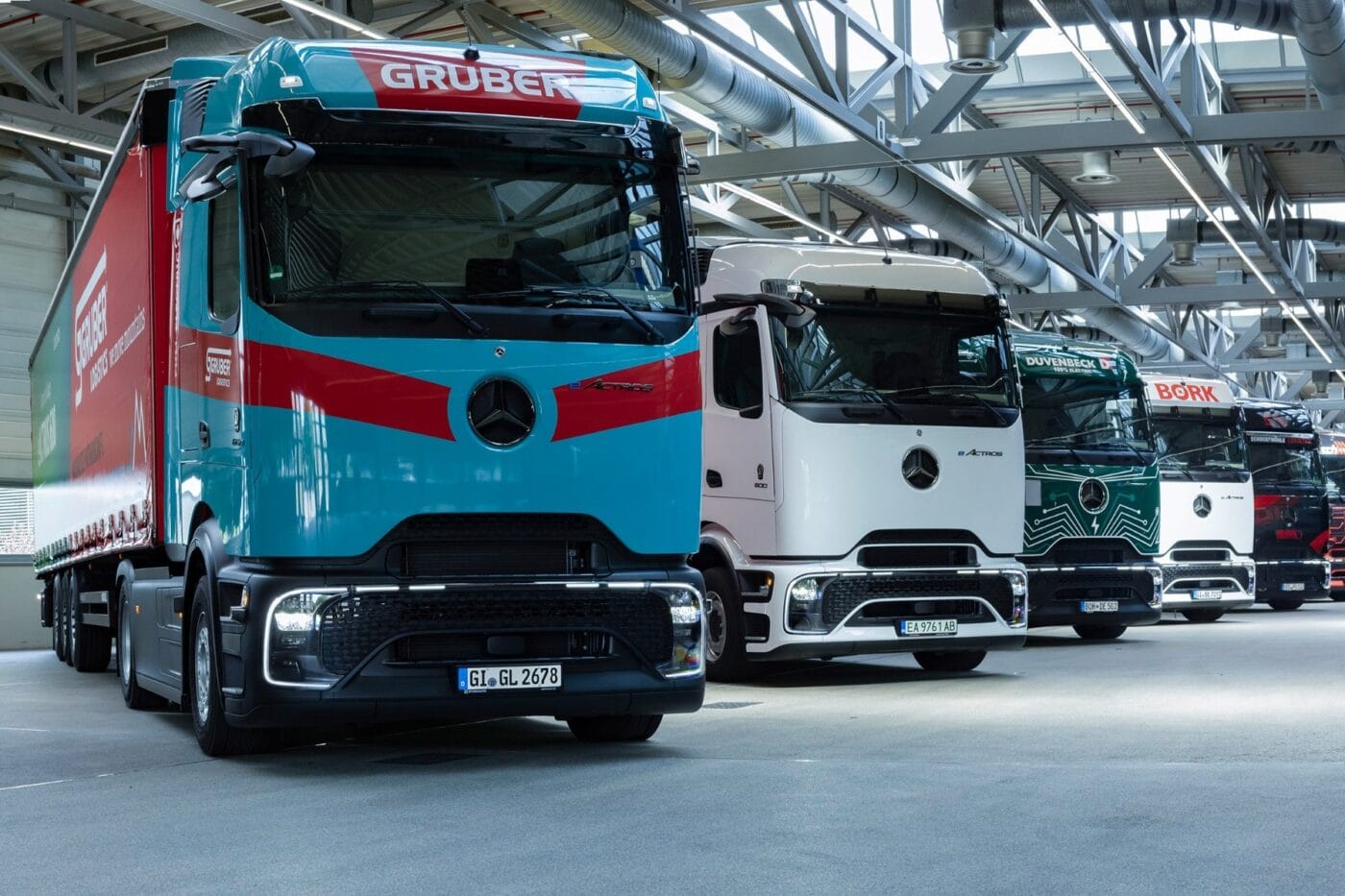
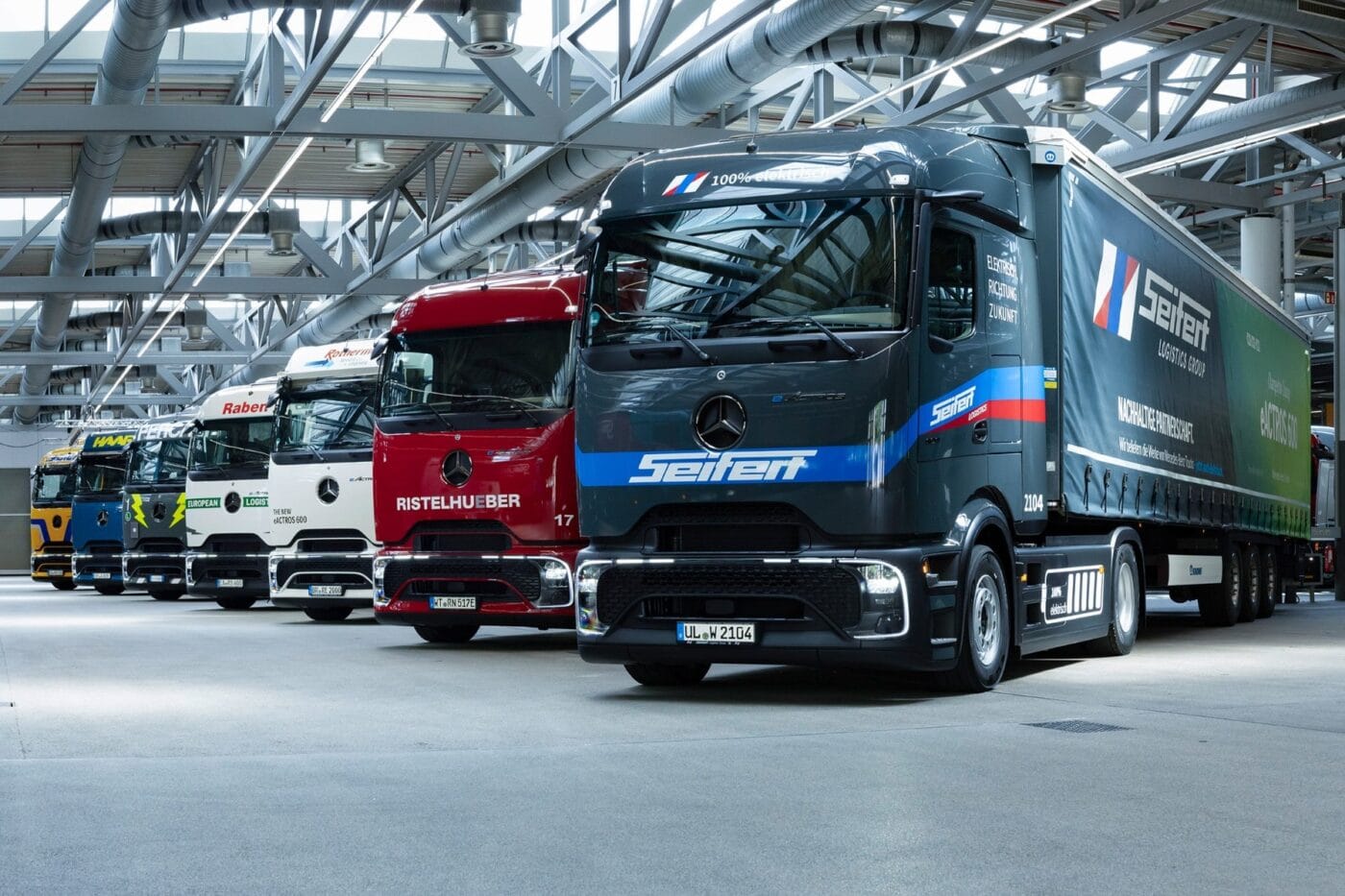
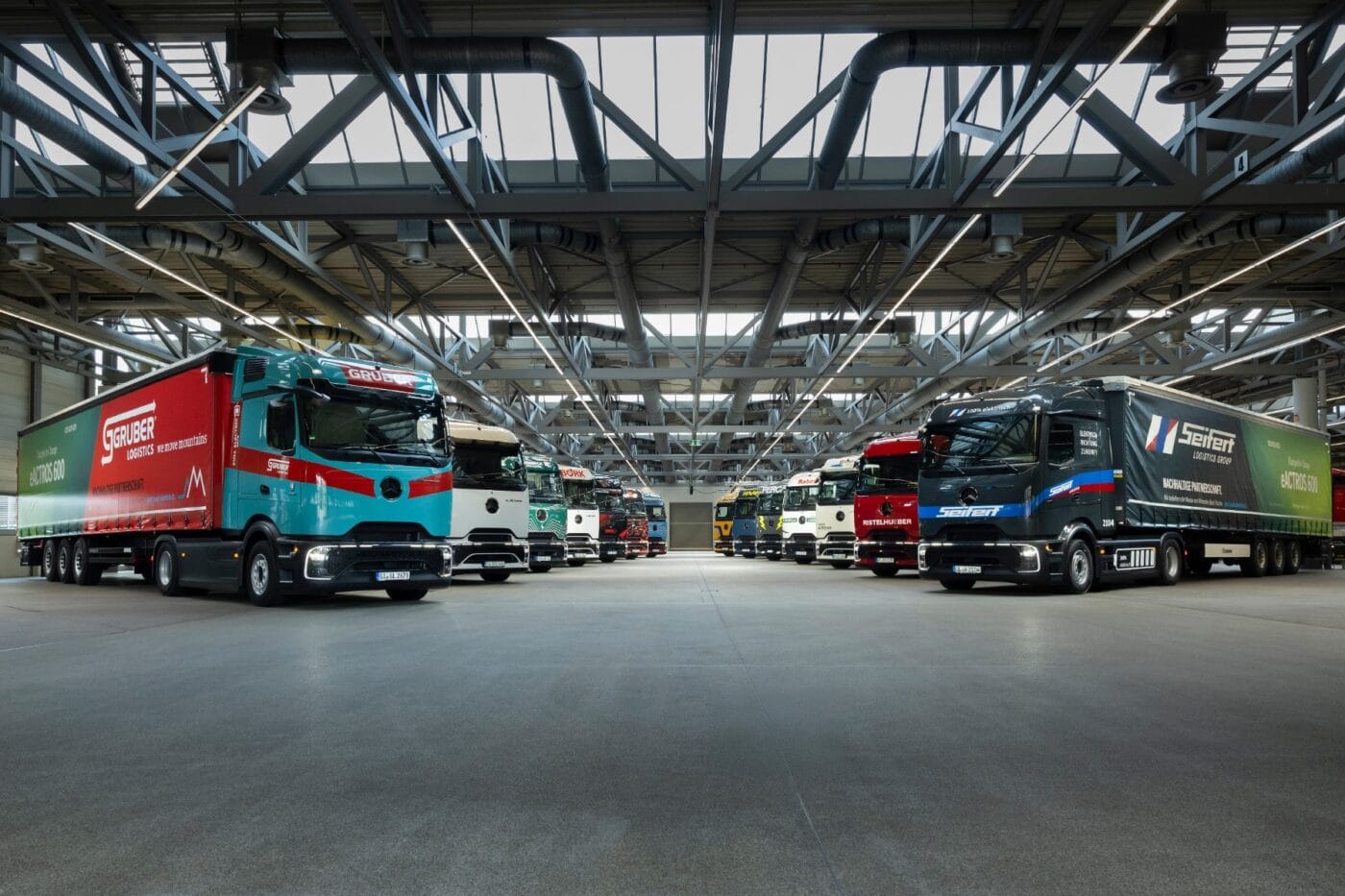
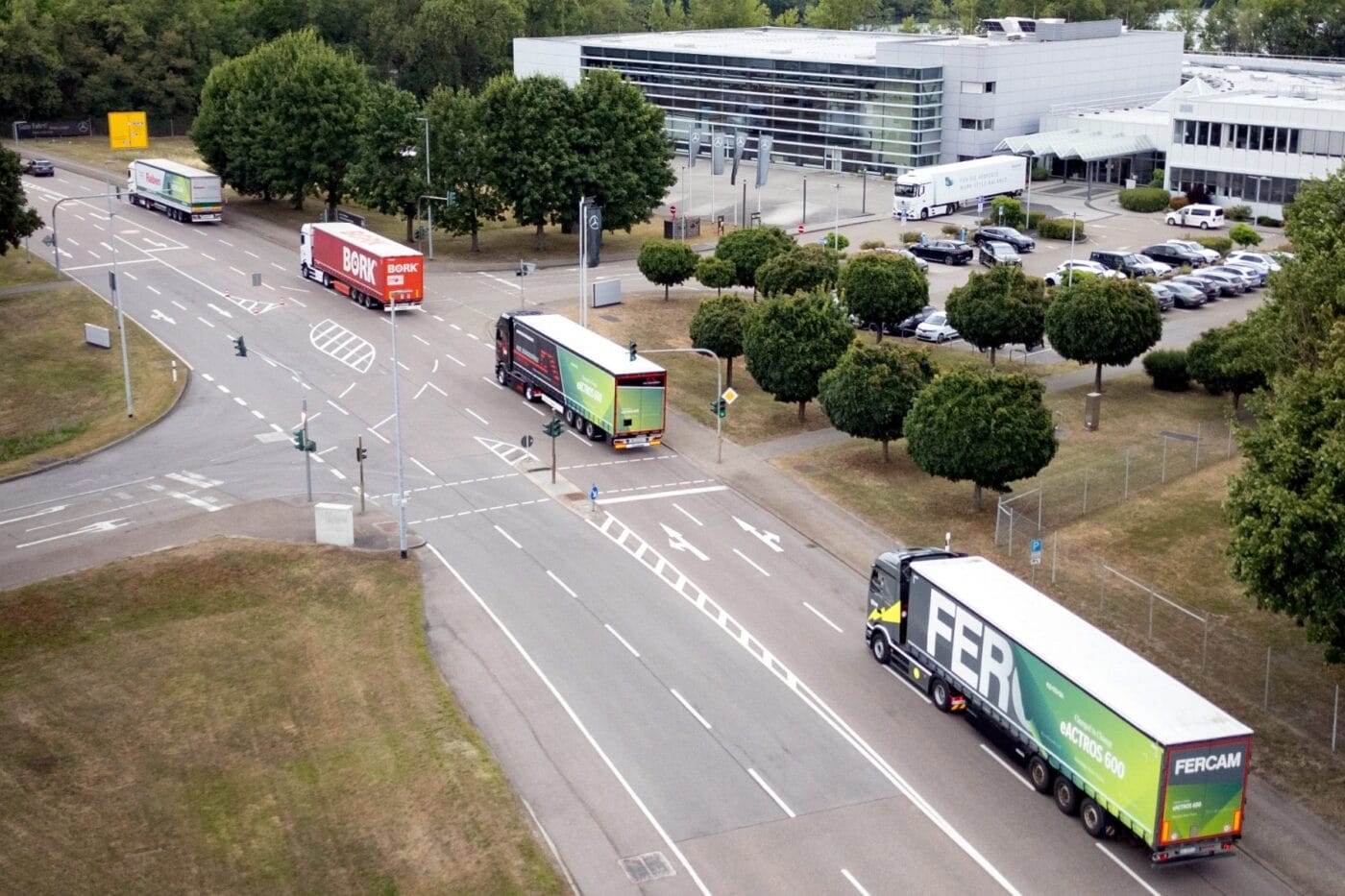
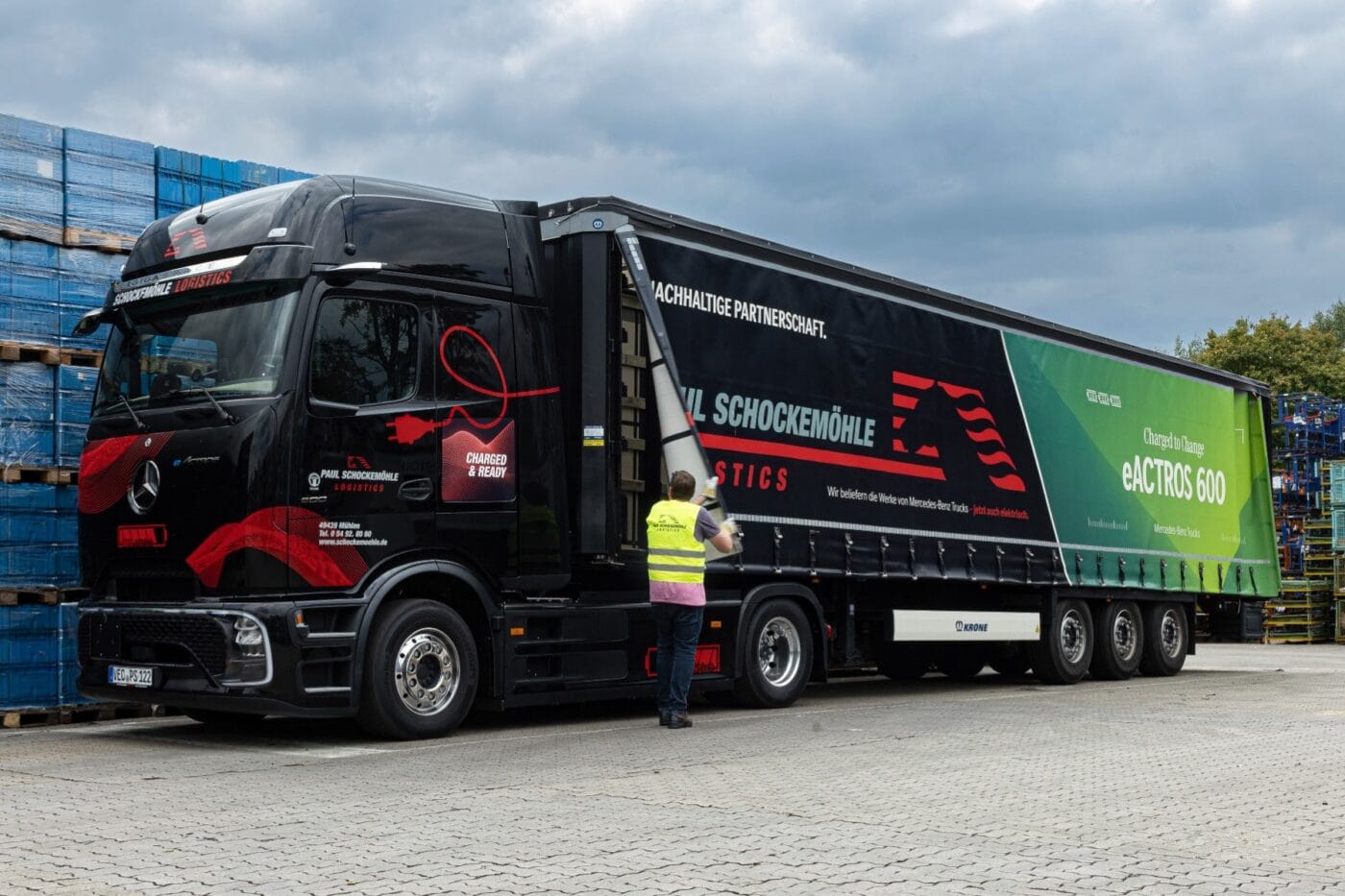
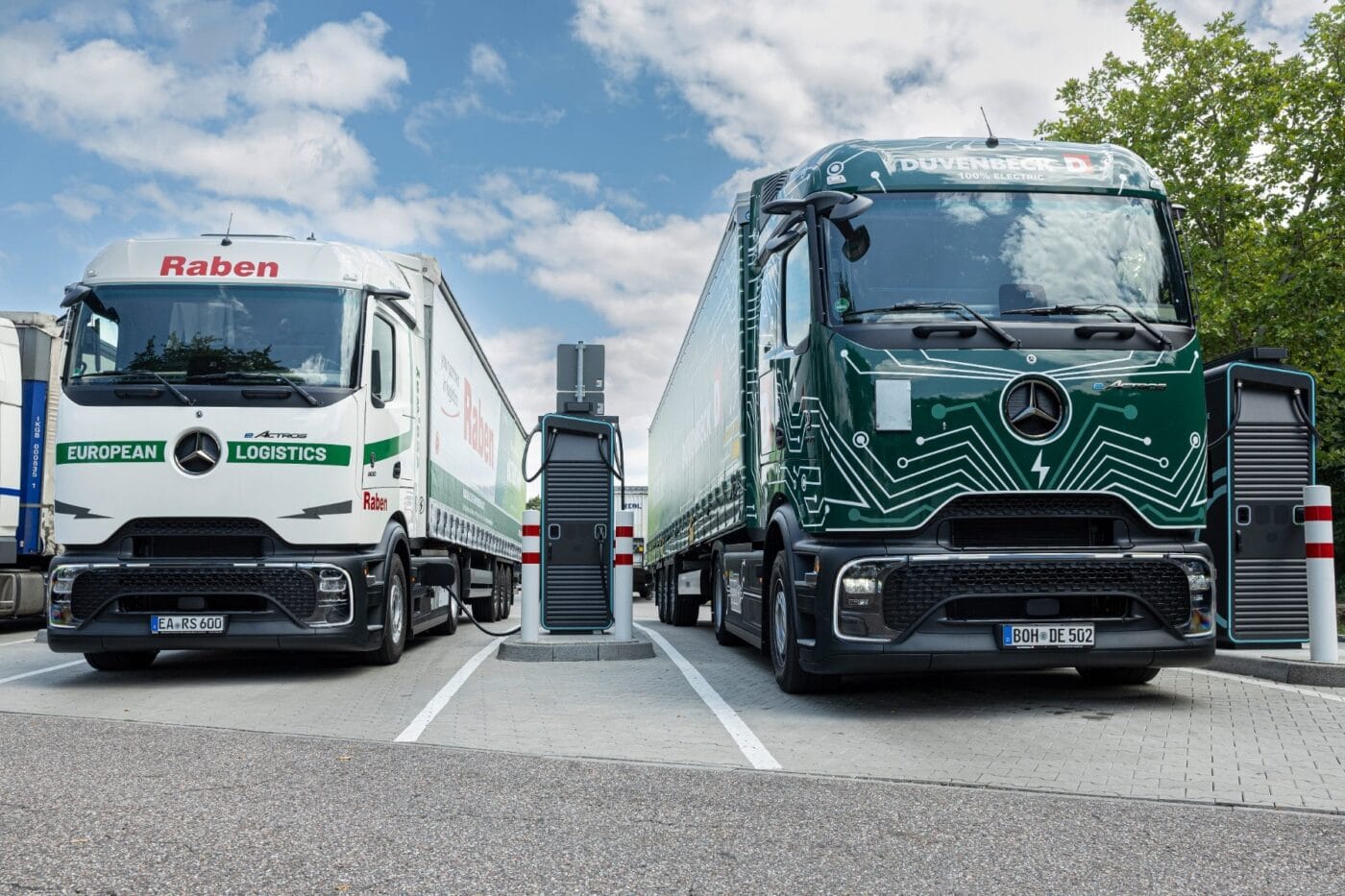
According to Puchert, the participating hauliers will be taking on some very demanding routes ranging from 150 to 600 kilometres, some of which cross borders; for example, to and from Italy, the Czech Republic and Luxembourg. Where required, the vehicles also use public charging infrastructure along the route, in addition to depot charging at Daimler Truck sites and the hauliers’ depots.
The participating haulage companies include: Alfred Schuon Internationale Spedition & Logistik, Duvenbeck, Edgar Rothermel Internationale Spedition, Ernst Frankenbach Spedition, Fercam, Gruber Logistics, HAAF Spedition, H. Ristelhueber’s Nachfolger Spedition, Lkw Walter, Paul Schockemöhle Logistics, Petko Angelov, the Raben Group, the Seifert Logistics Group, Spedition Bork and Walter Schmitt.
As part of its future inbound logistics concept, Daimler Truck is also driving forward the expansion of charging infrastructure at its plant sites. This year, eight new fast-charging stations will be installed across its German sites. They will complement the 15 existing chargers in Wörth (including six truck fast chargers with 400 kW) and the currently eleven chargers at the Gaggenau, Kassel and Mannheim plants and their associated external warehouses (including seven truck fast chargers rated at 400 kW). The rollout is being coordinated by the group’s own charging infrastructure brand, TruckCharge.
The 14 eActros 600 trucks will share the charging stations with the pioneers of Daimler Truck’s electrified factory logistics: a fleet of eActros 300/400 distribution trucks. According to the group, these have already “electrified more than 20 per cent of our directly commissioned transports with production material on regional delivery routes” over the past two years “- these are over 100 truck entries per day with battery-electric trucks into our plants.”
In 2024 alone, the electric trucks are said to have covered around two million kilometres purely electrically on approximately 40 routes. With the new eActros 600, this figure is set to rise to up to 2.5 million kilometres per year.
Series production of the eActros 600 began at Wörth in November. The model features a 621 kWh battery with LFP cells, which is expected to enable a range of around 500 kilometres. At launch, the battery can be charged via CCS at up to 400 kW, but the eActros 600 is also prepared for MCS (Megawatt Charging System) charging, which will later allow charging capacities of over 1,000 kW.

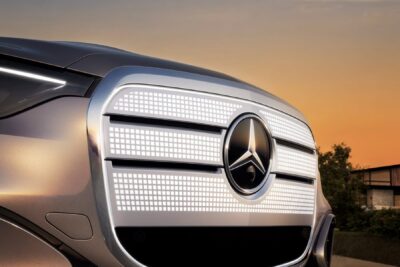
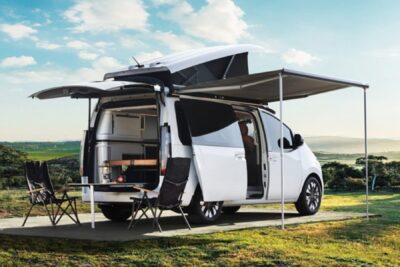

0 Comments